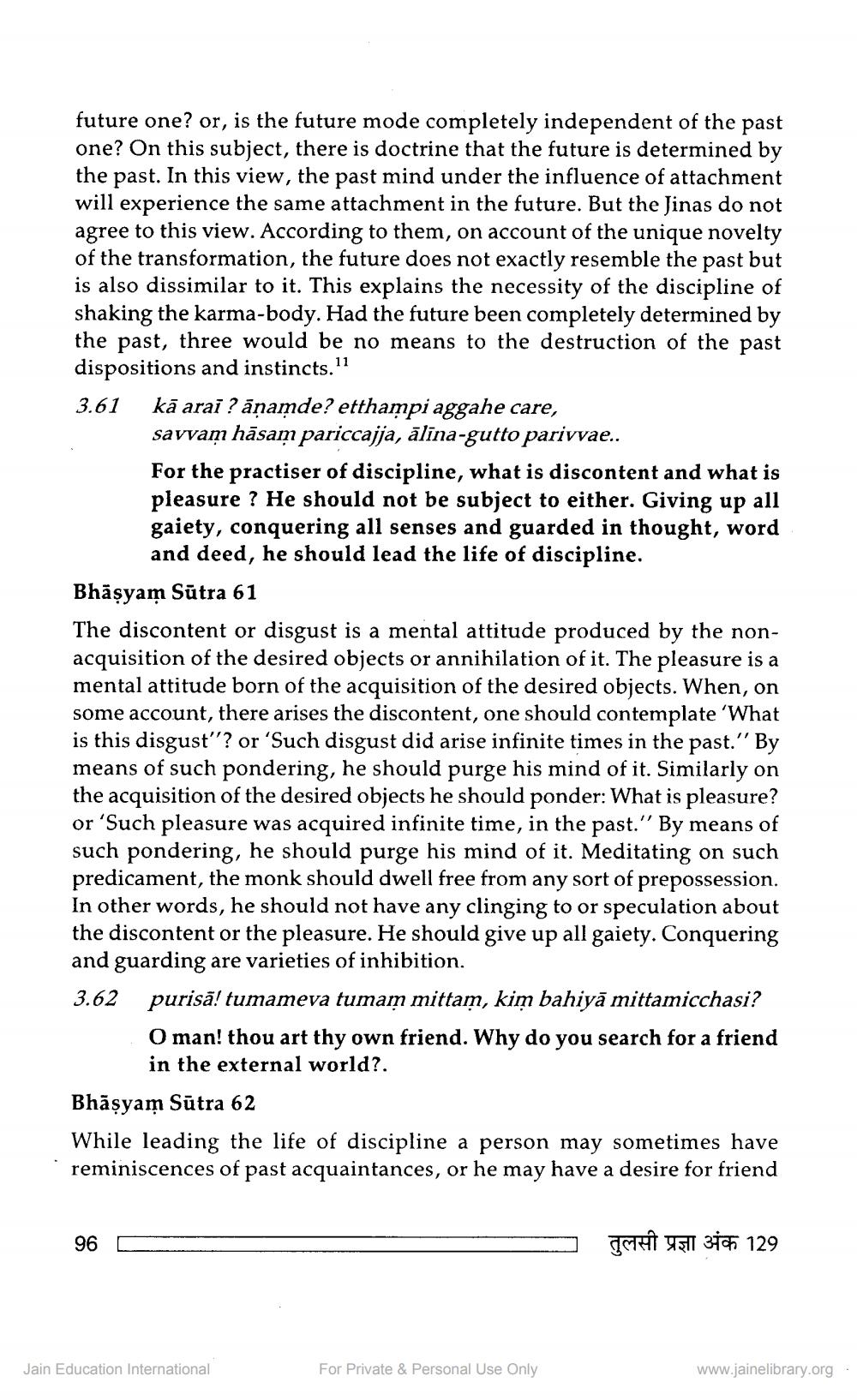________________
future one? or, is the future mode completely independent of the past one? On this subject, there is doctrine that the future is determined by the past. In this view, the past mind under the influence of attachment will experience the same attachment in the future. But the Jinas do not agree to this view. According to them, on account of the unique novelty of the transformation, the future does not exactly resemble the past but is also dissimilar to it. This explains the necessity of the discipline of shaking the karma-body. Had the future been completely determined by the past, three would be no means to the destruction of the past dispositions and instincts. 11 3.61 kā arai ? āņaņde? etthampi aggahe care,
savvam hāsam pariccajja, ālīna-gutto parivvae.. For the practiser of discipline, what is discontent and what is pleasure ? He should not be subject to either. Giving up all gaiety, conquering all senses and guarded in thought, word
and deed, he should lead the life of discipline. Bhāśyam Sutra 61 The discontent or disgust is a mental attitude produced by the nonacquisition of the desired objects or annihilation of it. The pleasure is a mental attitude born of the acquisition of the desired objects. When, on some account, there arises the discontent, one should contemplate 'What is this disgust''? or 'Such disgust did arise infinite times in the past." By means of such pondering, he should purge his mind of it. Similarly on the acquisition of the desired objects he should ponder: What is pleasure? or 'Such pleasure was acquired infinite time, in the past." By means of such pondering, he should purge his mind of it. Meditating on such predicament, the monk should dwell free from any sort of prepossession. In other words, he should not have any clinging to or speculation about the discontent or the pleasure. He should give up all gaiety. Conquering and guarding are varieties of inhibition. 3.62 purisă! tumameva tumam mittam, kim bahiyā mittamicchasi?
O man! thou art thy own friend. Why do you search for a friend
in the external world?. Bhāśyam Sūtra 62 While leading the life of discipline a person may sometimes have reminiscences of past acquaintances, or he may have a desire for friend
96
JOHT 4511 31
129
Jain Education International
For Private & Personal Use Only
www.jainelibrary.org




